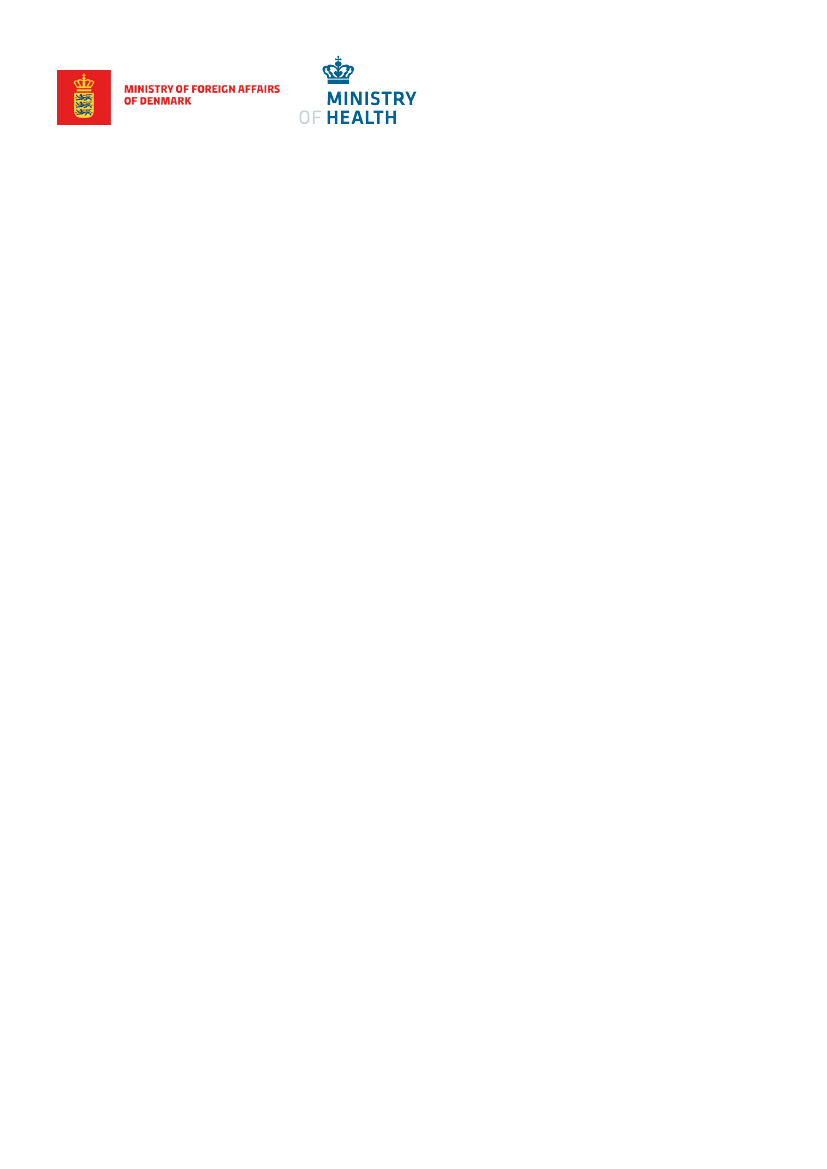
Danish Government response to the EU Commission’s
public consultation on the EU strategic framework for global
health
The Danish Government welcomes the opportunity to comment on the European
Commission’s public consultation on the EU strategic framework for global health.
Significant changes in global health and geopolitics have taken place since the
European Commission’s 2010 Communication ‘The EU Role in Global Health’. The
Danish Government thus fully supports the initiative to develop a new EU strategic
framework for global health.
The European Commission’s initial priorities listed in the Call for Evidence are import-
ant and aligns with the Government of Denmark’s overall priorities. The Government
of Denmark recognises that the COVID-19 pandemic exacerbated existing structural
weaknesses and inequalities in health systems and response mechanisms in Europe
and globally, not least in fragile areas. The pandemic revealed that global health chal-
lenges require a comprehensive and coordinated response. To that end, the pan-
demic demonstrated how the international dimension of EU health policy has be-
come a crucial part of the EU’s external action.
The Danish Government proposes that the new EU strategic framework for global
health sets an ambitious vision for the EU’s role in global health. The following five
global health challenges remain top priorities to tackle in order to achieve progress in
global health. Building on partnerships and strengthening the Team Europe approach
will be key to successful implementation of the strategic framework.
1.
Strengthen global prevention, preparedness and response to health crises
based on lessons learned from the COVID-19 pandemic
Date
19 September 2022
The economic and social disruption from COVID-19 has been devastating and the loss
of human lives staggering. One crucial lesson learned from the pandemic is that
health systems across the world are not strong nor resilient enough to handle global
health emergencies. There is an urgent need to address these issues in order to
strengthen global health security. In collaboration with relevant partners, the EU
should provide local, national and global support for health-system capacity building,
including the full implementation of the International Health Regulations (IHR) and
other relevant instruments, as a tool to enhance local, national and global responses
to health emergencies based on experience and evidence from the COVID-19
pandemic.
2.
Ensure a One Health approach to antimicrobial resistance (AMR) and other fu-
ture health crises
The increasing incidence of antimicrobial resistance (AMR) represents a major global
challenge. Globally, it is estimated that AMR already cause more than 1.2 million
deaths each year; a number that is predicted to dramatically increase if radical action
1